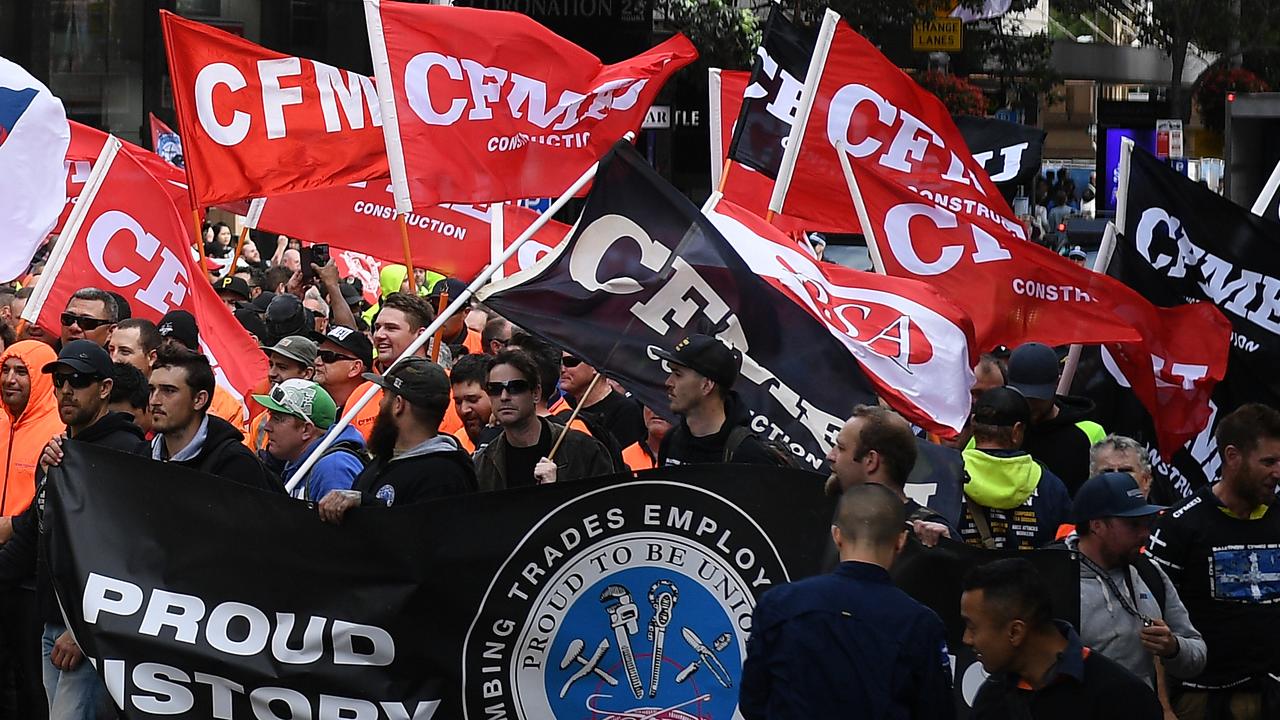Concrete pumping firm warned over threat to make workers redundant
A Boral subsidiary risks being excluded from tendering for federal-funded construction work if it breaches the building code.

Boral subsidiary De Martin & Gasparini risks being excluded from tendering for commonwealth-funded construction work if it commits a further breach of the federal building code.
Jobs and Industrial Relations Minister Kelly O’Dwyer issued a “formal warning” this week to the NSW concrete pumping and placement company after the Federal Court found in September that it unlawfully threatened to make 100 workers redundant.
Ordering DMG to pay $30,000 to the construction union, Federal Court judge Michael Wigney found the company’s threat to make the workers redundant was designed to instil fear in the workforce.
The minister’s warning means DMG risks being excluded from tendering for Commonwealth-funded building work for another code breach.
Australian Building and Construction Commission head Stephen McBurney said it was imperative that all industry participants complied with the law.
“Workplace laws are there to protect all building industry participants equally, whether they are workers, employers or unions,” Mr McBurney said.
“In this instance, the contravention of the law also constitutes a breach of the 2016 Code. Companies that do not abide by the law run the very real risk of being excluded from tendering for commonwealth-funded work.”
But the Construction Forestry Maritime Mining and Energy Union, which initiated the Federal Court action against DMG, criticised the ABCC for not taking its own legal action against the company.
“The ABCC saw Boral breaking the law right in front of their eyes and did nothing,” said Dave Noonan, the national secretary of the union’s construction division.
He said the ABCC was interested in pursuing only unions and not employers.
DMG threatened to make the workers redundant after a majority of them voted down changes to an enterprise agreement that the company sought to be compliant with the federal building code.
Companies that were not compliant could not bid for commonwealth building work.
Justice Wigney found the breach of the Fair Work Act, which carried a maximum $63,000 penalty, was “very serious”.
“There could be little doubt that De Martin & Gasparini was put in the unenviable position that it and its related companies would be unable to perform commonwealth government-funded building work after 1 September 2017 if it was unable to vary the enterprise agreement,’’ he said.
“That would, undoubtedly, have been financially and commercially very damaging, if not almost catastrophic, not only for De Martin & Gasparini, but also Boral and its related companies.
“De Martin & Gasparini was effectively put in that difficult position through no fault of its own. The Enterprise Agreement had been negotiated and entered into well before the Code was finalised.”
Justice Wigney said the difficult position that DMG “found itself in did not, and does not, excuse or justify the unlawful action it ultimately took”.
“It does, however, tend to explain it. The action was, in a sense, an ill-conceived, poorly considered and rather desperate response to the difficult circumstances. that De Martin & Gasparini found itself in.’’
As events transpired, the impugned actions taken by DMG were ultimately unnecessary as the parties agreed on changes to make the agreement code compliant before September last year.




To join the conversation, please log in. Don't have an account? Register
Join the conversation, you are commenting as Logout